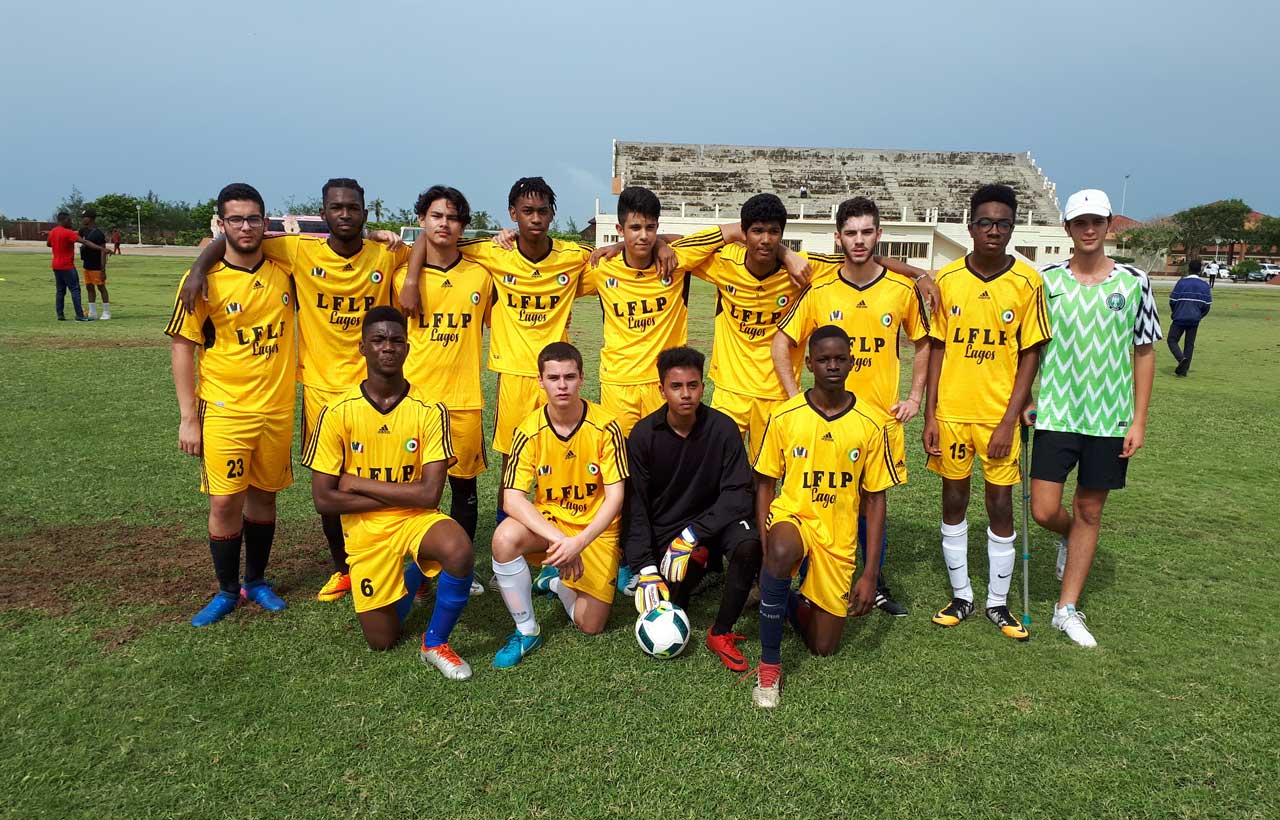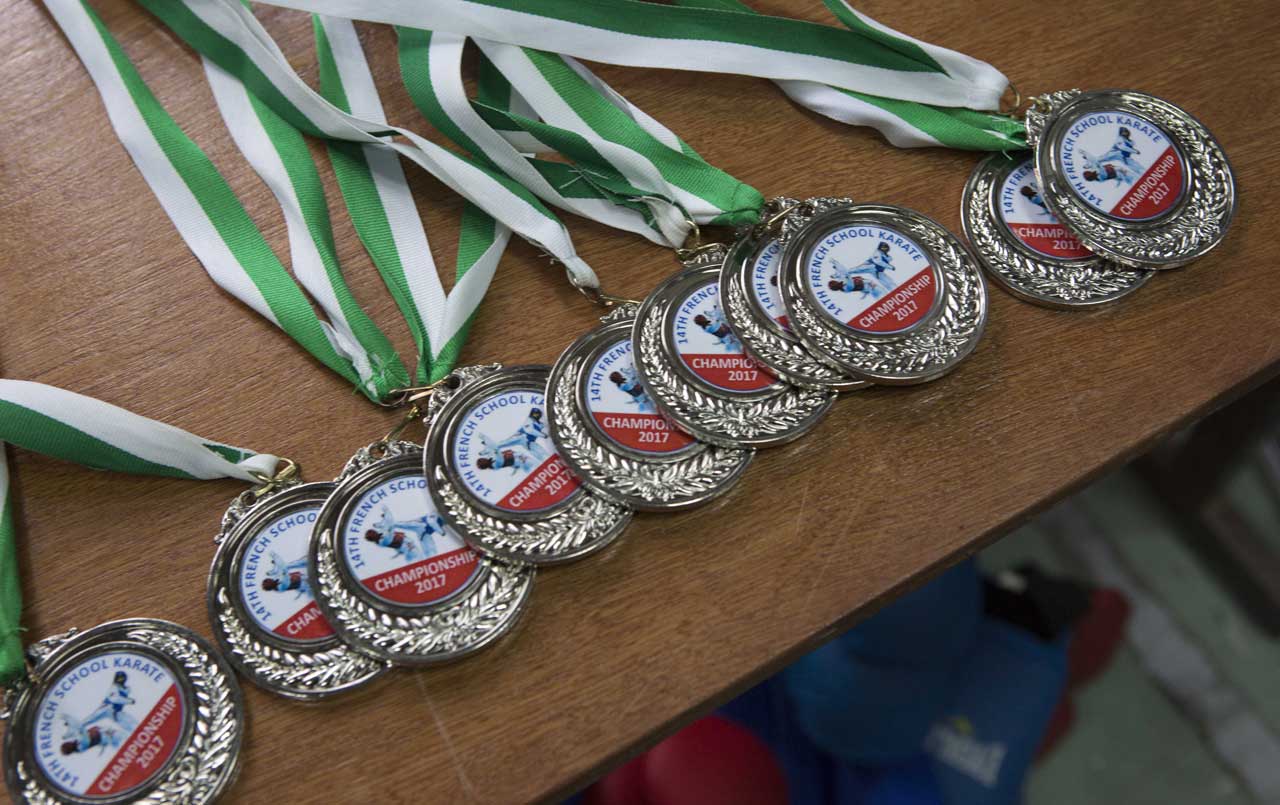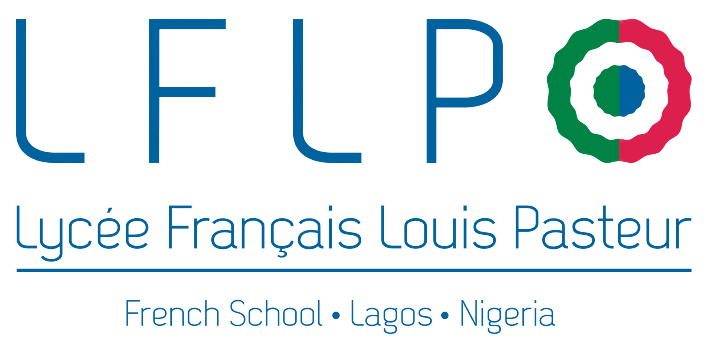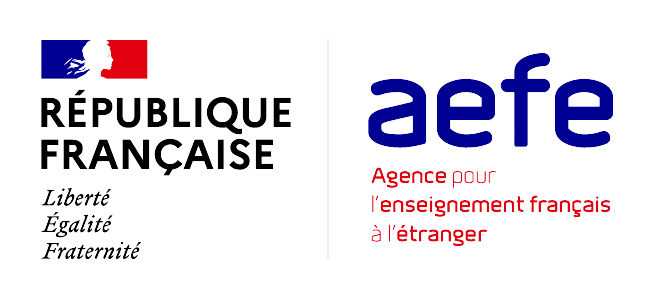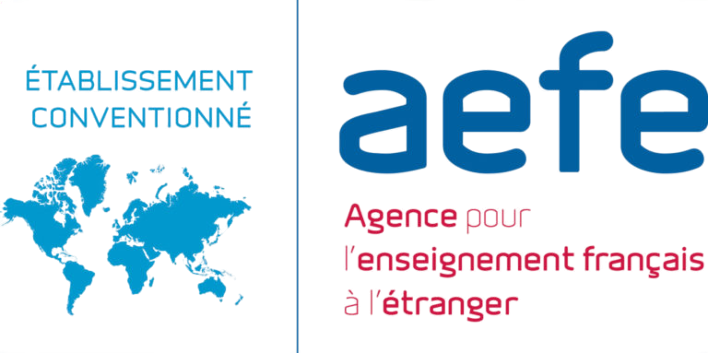SPORTS EDUCATION AT LFLP
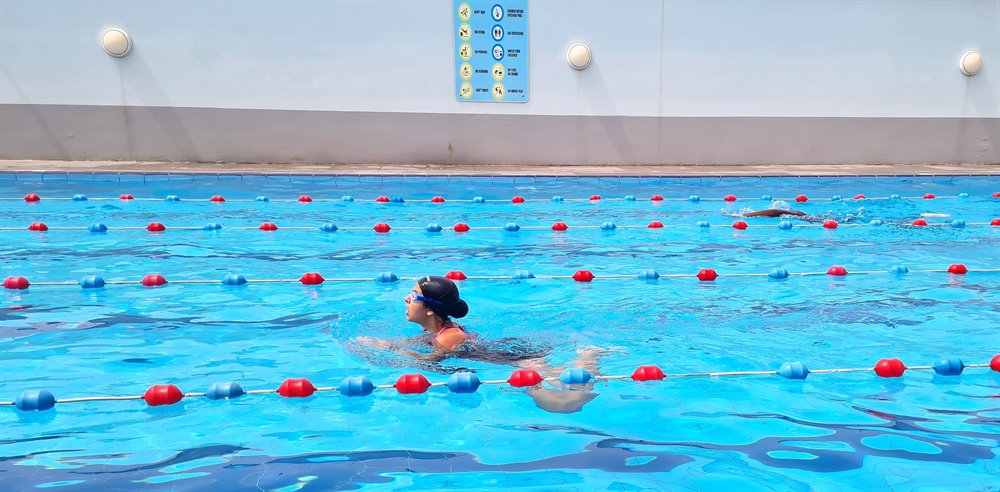
Sport in school helps promote respect for ethics, educational and humanistic values represented in sport in general. It plays a decisive role in young people’s access to sport and gives true meaning to “living together” and to learning about community life. It participates fully in the health and preservation of the physical integrity of the students. This is a privileged asset for equal opportunities and for the civic education of young people.
Kindergarten is an opportunity to build essential motor skills: moving around, ensuring one’s balance and handling objects, projecting them or receiving them. Toddlers’ games are the first manifestations. The teacher leads the child to move from the simple pleasure of acting to desired and organized actions, gradually more elaborate and articulated between them.
Our school offers children the opportunity to broaden the scope of their experiences in environments and spaces that help them get to know themselves better and develop their physical capacities. This encourages them to adjust and diversify their actions, which offers them a range of sensations and varied emotions and gives them the pleasure of evolving and playing within a group.
Children also learn to share with their peers moments of group games, danced and sung games. All these skills are built through the practice of physical activities which help to direct the efforts of children and to give them meaning: “jumping as far as possible” (athletic activities) is different from “jumping from an object to land on his feet” (gymnastic activities).
These experiences lead them to express and communicate the impressions and emotions they feels.
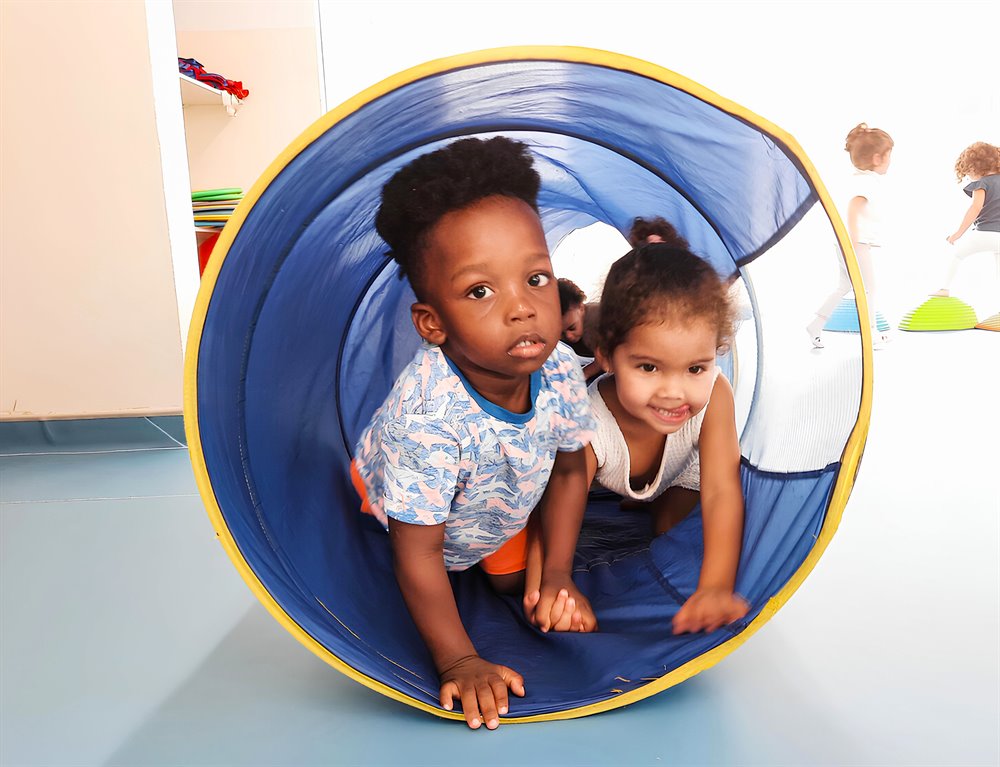
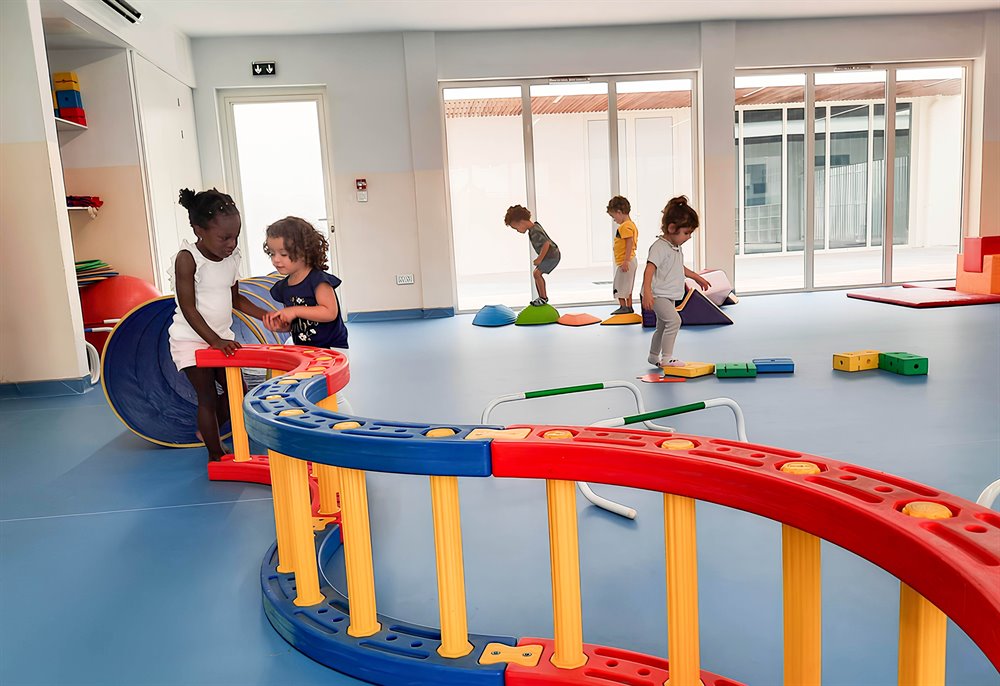
Three hours a week, physical and sports education (PSE) aims to develop motor skills and practice physical, sports and artistic activities. It contributes to:
- health education by enabling students to know their bodies better
- safety education through controlled risk taking
- responsibility and independence, by giving students moral and social values such as respect for rules, respect for oneself and for others
Several physical and sports activities are practised each year in order to build solid learning. According to the human and technical resources available in our school, we teach children:
- for performance skills: athletic activities, swimming
- for adaptation to different environments skills: orientation, climbing, rolling and sliding.
- for cooperation and individual or collective opposition activities: wrestling games, rackets, group games (traditional or sports)
- for artistic, aesthetic or expressive activities: dance, gymnastic activities, circus activities
Each of those modules is an opportunity to build new knowledge, about oneself and about the physical and sports activities practiced. Swimming activities are implemented as a priority to allow all students to access swimming knowledge before entering college.
School sports day takes place every year in September. It is intended to raise awareness and promote the extracurricular activities offered in the school as well as innovative sports, thus contributing to the development of school sports.
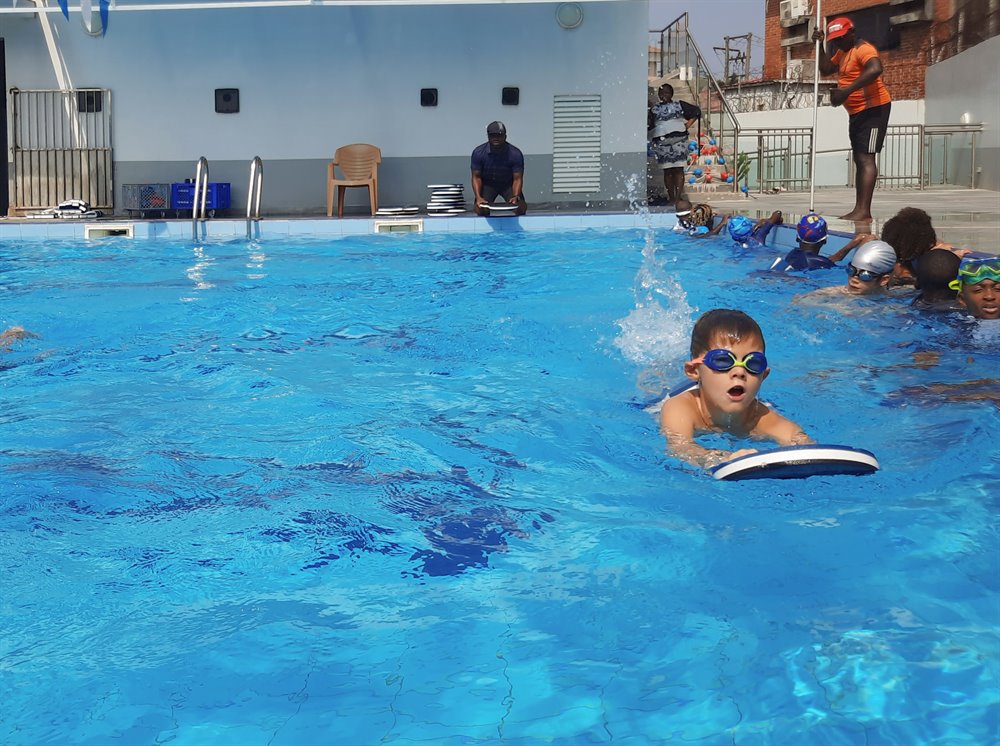
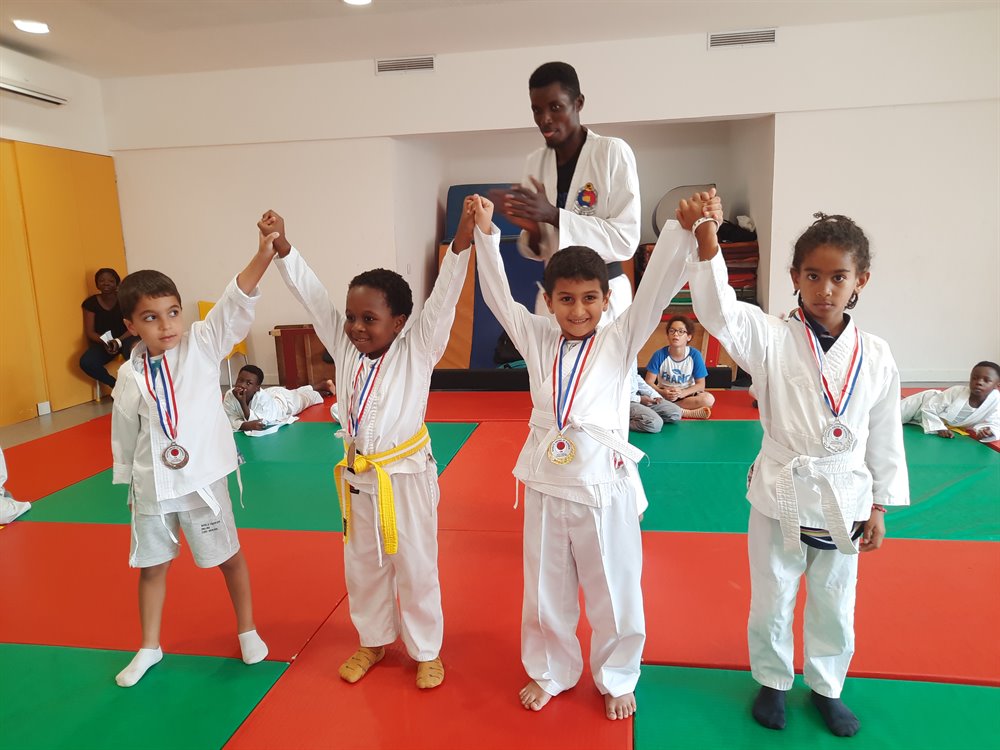
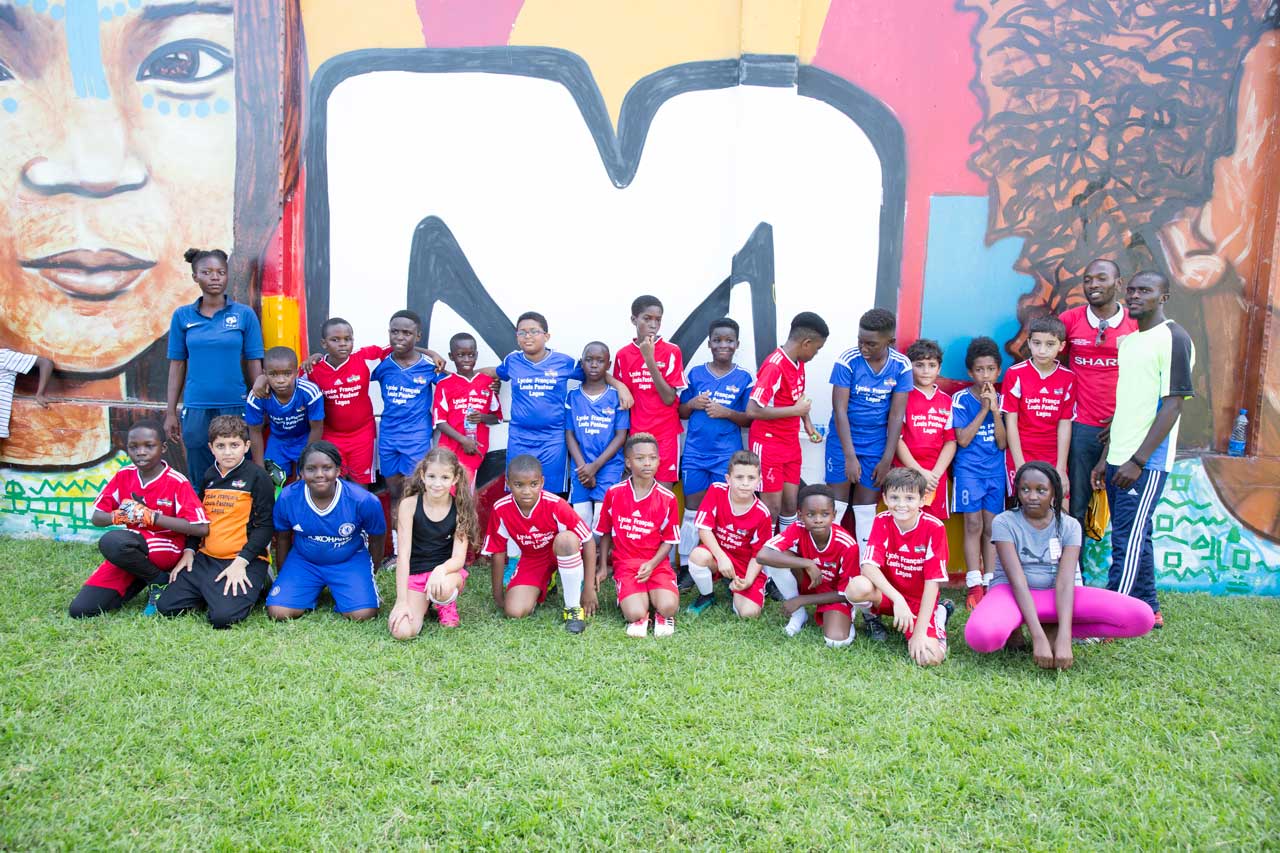
All middle school students receive compulsory weekly physical education and sports (PES) training for 4 hours in sixième (6th grade) and 3 hours in the other grade levels. The PES is assessed at the Diplome National du Brevet (DNB) in continuous assessment.
Students can practice a variety of activities: 26 physical, sporting and artistic activities (APSA) are conceived at the national level. Special mention is made to “swimming skills” as the mastery of the aquatic environment is to be acquired and validated by all within the framework of the common base.
The physical education and sports helps girls and boys to acquire new benchmarks about themselves and others, new motor powers and become more efficient. Teenagers learn to:
- respect rules
- engage in a project approach
- take responsibility
- know and protect themselves
Middle school students who want to practice a sport in addition to the compulsory PES lessons can turn to the school sports association (AS). Fully integrated into the school project, our sports association participates in the animation of school life and student success.
It offers students the opportunity to practice one or more sports every week, throughout the year, for 3 hours (especially on Wednesday afternoon or Saturday morning). The involvement of students in the life of the sports association and in the organization of meetings and competitions is particularly encouraged, for example the appointment of a student vice-president in each AS. It aims to empower them, to promote their autonomy and initiative.
A training in organization, arbitration, management and reporting is in place.
The National Union of School Sports (UNSS) brings together associations of schools that wish to do so. Our schools is affiliated with the UNSS and thus participates in tournaments, groupings, inter-school championships, abroad
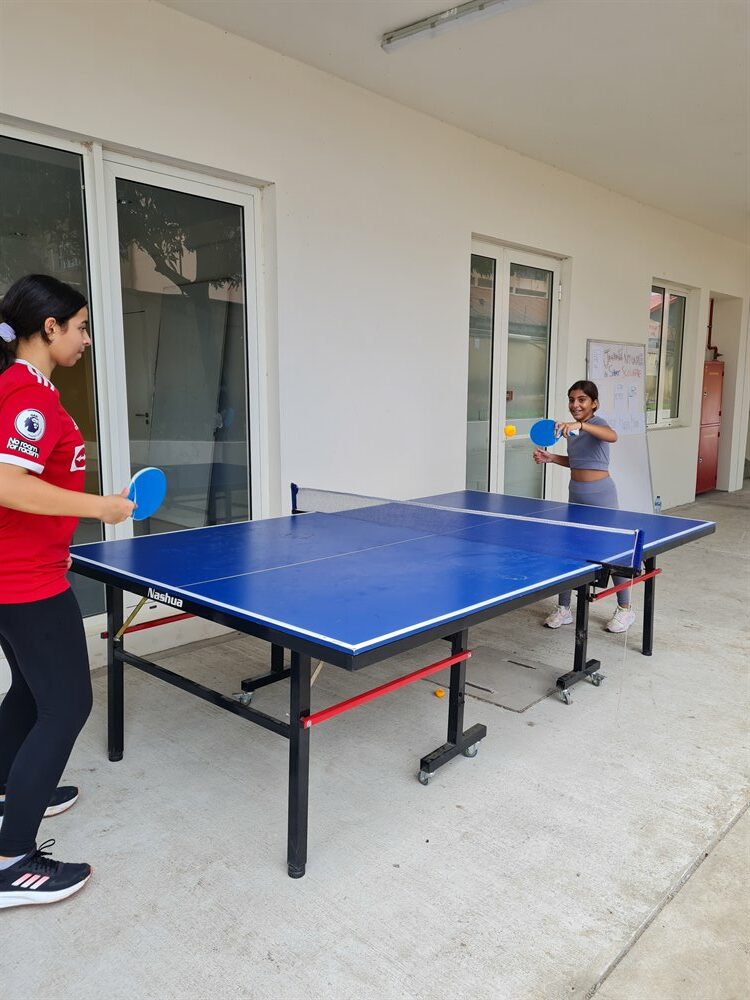
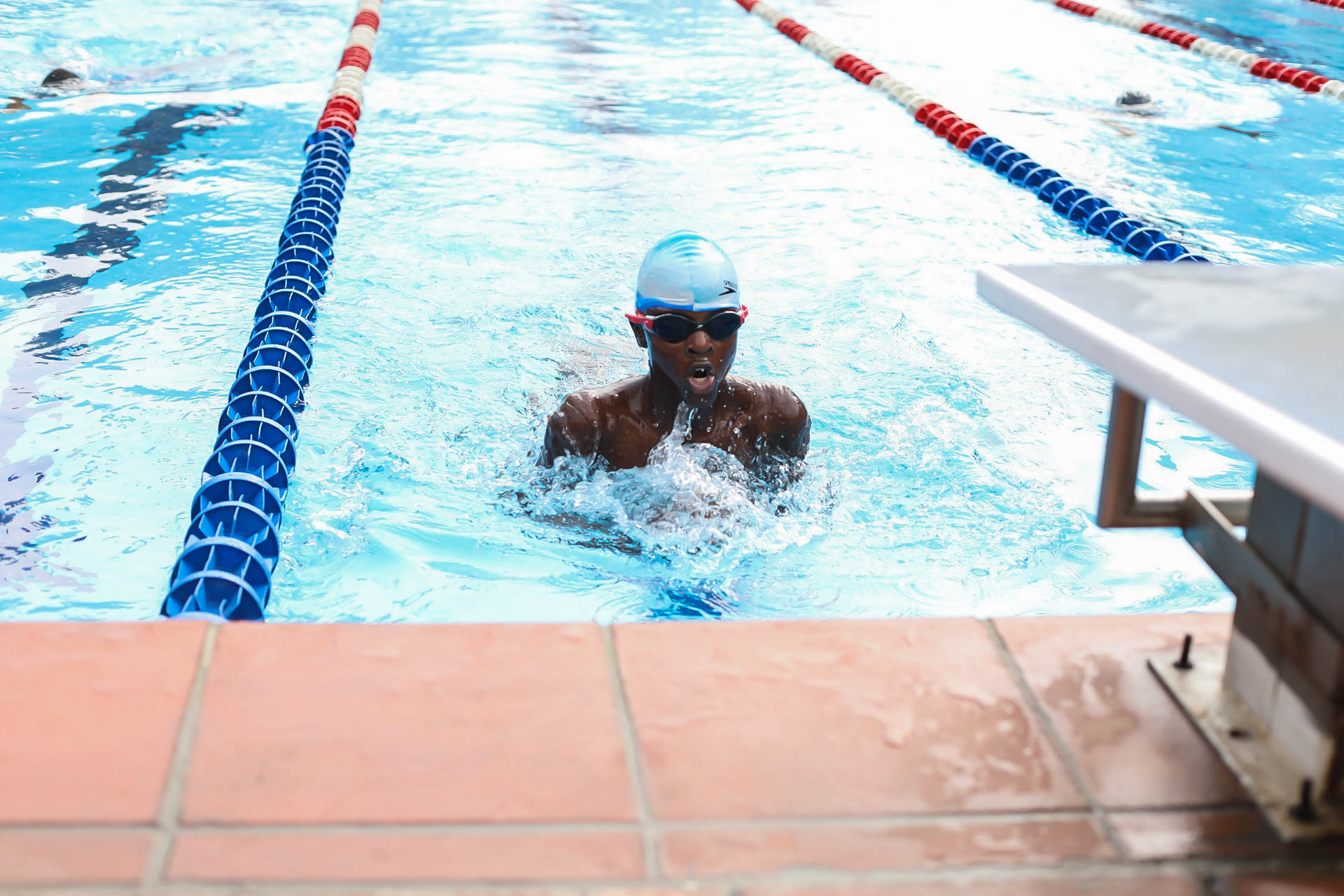
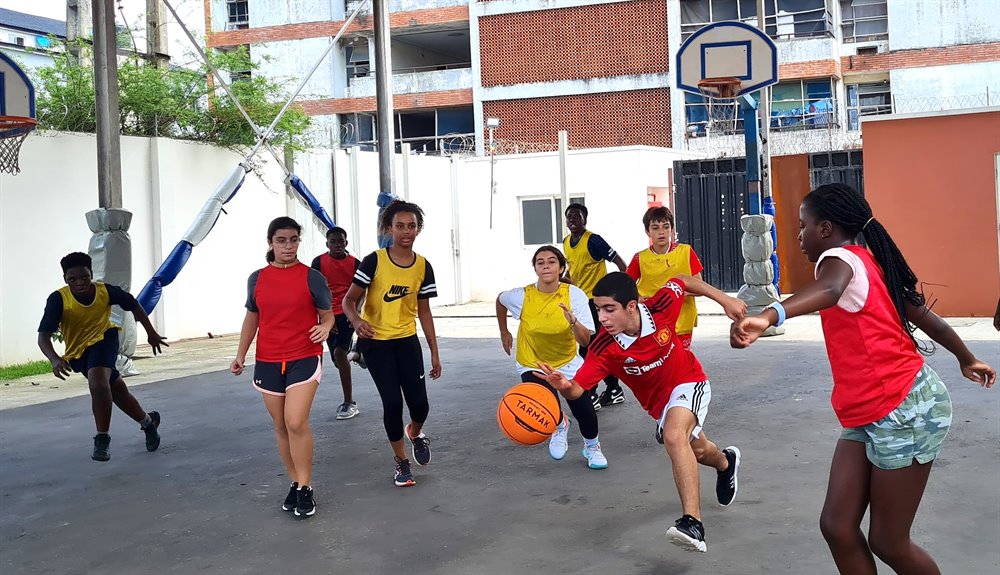
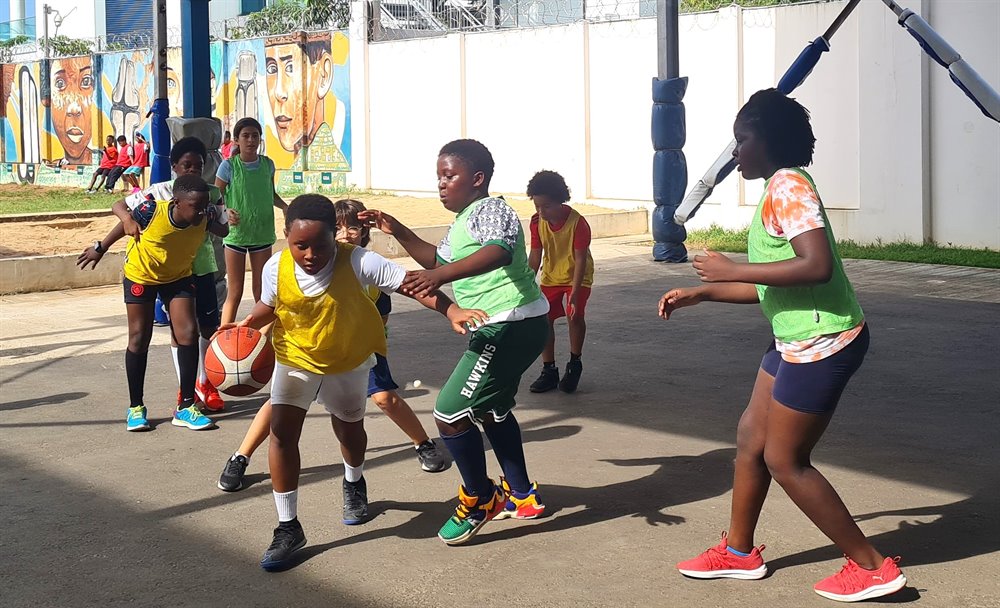
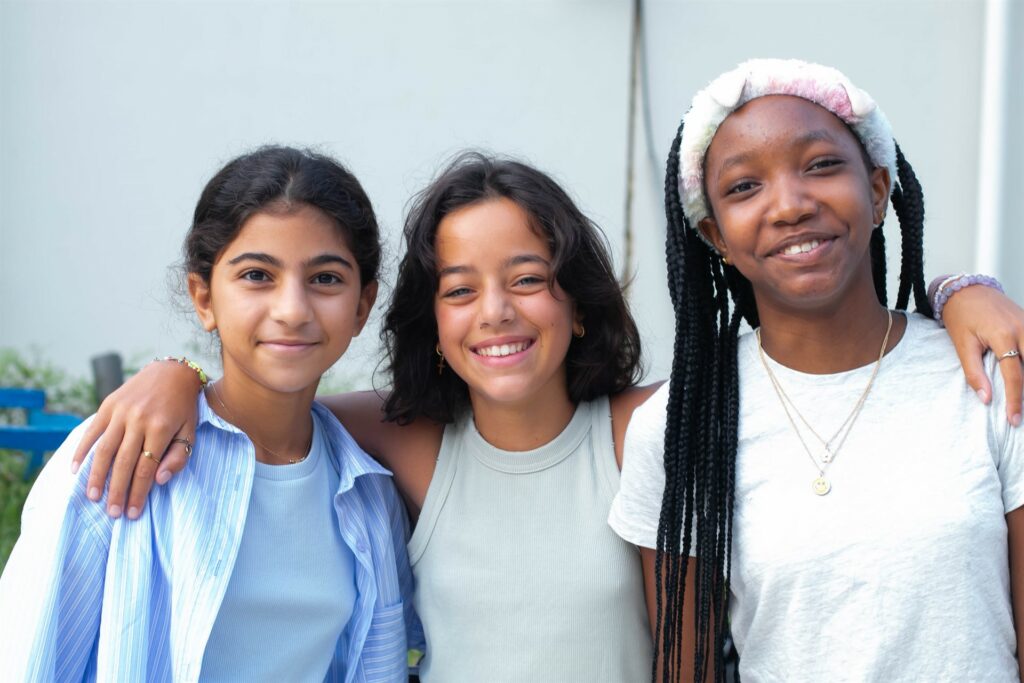
All high school students follow compulsory PES education of 2 hours per week.
Through the school practice of adapted and diversified physical, sporting and artistic activities, the EPS contributes to the development of the pupils. This teaching contributes to physical condition and good health throughout life while developing civic values. It allows for bodily engagement, which for many young people represents the sole practice of physical activity. It tends to entice to regular and independent practice.
The evaluation of the PES at the baccalaureate exam is carried out by an invigilation during training (CCF) during the Terminale final class. The score for the compulsory test is derived from a certification package made of three tests requiring different skills. This score is carries 2 unit coefficient.
Students wishing to acquire more in-depth sports training can choose:
- an optional PES education of 3 hours per week in Seconde (10th grade), Premiere and Terminale classes, focusing on two activities
- an exploration course of 5 hours per week in Seconde (10th grade) class, which can be continued during the Terminale cycle by a 4 hour complementary course.
